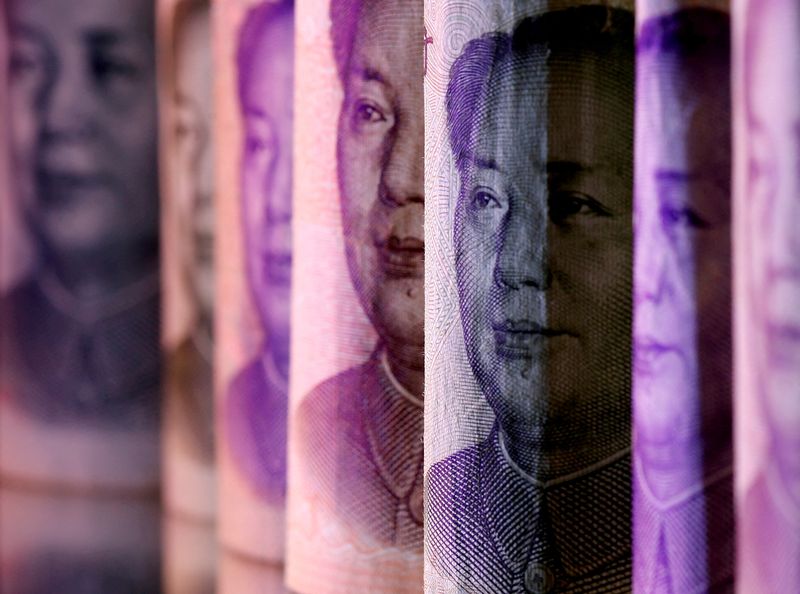SHANGHAI (Reuters) – China must prevent and defuse the risk of external shocks this year while strengthening macro-prudential management and guiding market expectations, the country’s foreign exchange regulator said on Friday.
The comments come as the U.S. Federal Reserve is widely expected to start hiking interest rates as early as March, while its Chinese counterpart has stepped up monetary easing to prop up a slowing economy, raising concerns about possible capital outflows due to the policy divergence.
During the previous round of Fed tightening in 2018, China’s currency depreciated sharply.
China is better able to cope with external changes, and “this round of tightening by the Federal Reserve may have less spillover effect than the previous round,” Wang Chunying, spokesperson of the State Administration of Foreign Exchange (SAFE), told a news conference on Friday.
On Wednesday, Chinese government bond yields fell across the curve after an official’s comments heightened expectations that the country’s benchmark lending rate will be cut as early as this week to shore up the cooling economy.
“In the face of this round of Fed tightening expectations, both cross-border loans or capital flows related to trade financing are relatively stable,” Wang said.
Robust export growth, ample FX liquidity and the attractiveness of Chinese assets should all help China better tackle changes in the external environment, the regulator added.
The yuan was the best performing emerging market currency in 2021, appreciating 2.7% against a rising dollar. Its gains have extended into 2022, with a 0.2% advance year-to-date.
China’s current account surplus to GDP ratio for 2021 was tentatively estimated to be within 2%, Wang added.
(Reporting by Tina Qiao and Ryan Woo, Writing by Winni Zhou; Editing by Richard Pullin)
























